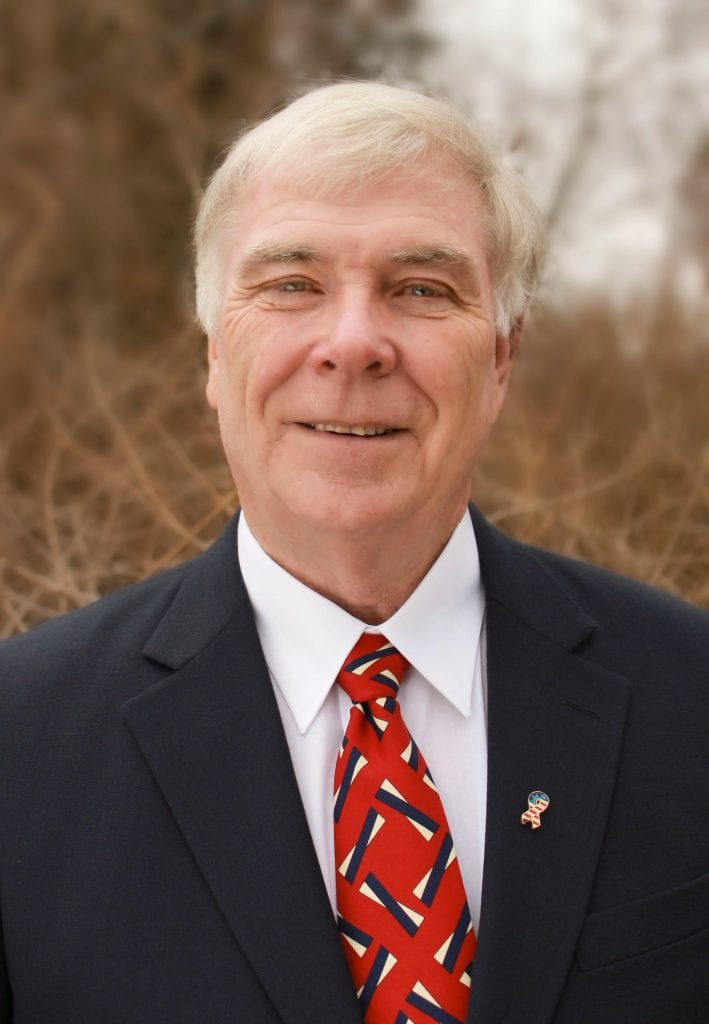Gov. Bob Holden certainly didn’t get what he wanted last week as the General Assembly refused to act on his tax proposals and then overrode three of his vetoes — an unprecedented accomplishment.
State legislators representing south county were united on the vote to override Holden’s veto of an anti-abortion measure, but split along party lines on votes to override Holden’s vetoes of concealed-carry legislation and a bill that bars political subdivisions from suing gun dealers and manufacturers for the social costs of their products.
Although a simple majority is required to pass bills in each legislative body, it takes a two-thirds’ vote of the House (109) and of the Senate (23) to override a governor’s veto. The late Gov. Mel Carnahan had one veto overridden during his eight years in office.
During the first two years of Holden’s term, no vetoes were overridden. Since the enactment of the current Missouri Consti-tution in 1945, only three times has a governor’s veto been overridden.
The Legislature overrode Holden’s veto of the “informed consent” legislation — House Bill 156 sponsored by Rep. Susan Phillips, R-Kansas City — that requires a 24-hour waiting period before a woman could obtain an abortion.
Rep. Walt Bivins, R-Oakville, and Rep. Patricia Yaeger, D-Lemay, were co-sponsors of the bill. The other four area House members — Rep. Jim Avery, R-Crestwood; Rep. Jim Lembke, R-Lemay; Rep. Sue Schoemehl, D-Oakville; and Rep. Michael Vogt, D-Affton — along with Sen. Anita Yeckel, R-Sunset Hills, also voted to override the governor’s veto.
“I am honored to be a state representative and to make this historic vote in favor of life,” Bivins stated in a news release.
Schoemehl told the Call, “I am pleased that I have been elected to serve by the people of my district and have had the opportunity to place the support of life ahead of politics.”
Yaeger, who voted for the override, had told the Call, “I ran on a pro-life platform. The electorate knew my position when they voted for me last November.”
In response to an inquiry, Schoemehl and Yaeger told the Call that they had not yet received any pressure from the governor’s office to support his veto.
But the pro-gun legislation — House Bill 349, sponsored by Rep. Larry Craw-ford, R-California, and Senate Bill 13, sponsored by Sen. Peter Kinder, R-Cape Girardeau — did not enjoy the unanimous support of the area legislators.
Republicans supported an override of these two bills and Democrats voted to sustain Holden’s vetoes.
Yaeger explained that she could not support the concealed-carry measure because the voters in April 1999, clearly decided that they do not wish to authorize the carrying of concealed weapons in this state.
She was referring to Proposition B that was overwhelmingly defeated in St. Louis County, receiving 201,512 “no” votes and 88,334 “yes” votes.
“My district overwhelmingly voted against Proposition B. Although I am not personally opposed to guns, I feel compelled to vote the wishes of my constituents,” she said.
Avery told the Call that House Bill 349 is nothing like Proposition B.
“The legislation adopted by the General Assembly is the most restrictive concealed-carry measure in the country,” he said.
Those sentiments were echoed by Bivins in his support of House Bill 349.
House Bill 349 will become effective Oct. 11. To obtain a permit to carry a concealed weapon, a person must be at least 23 years old and either a resident of the state for six months or a member of the military stationed in the state. The applicant must pass a background check and a gun safety course.
Permits to carry concealed weapons will not be issued to anyone judged mentally incompetent or who has been in a mental institution in the past five years.
Other restrictions are placed upon individuals convicted of a misdemeanor “crime of violence” within the past five years, those who have had two or more misdemeanors involving driving under the influence of alcohol or drugs, and those who have been convicted of or pleaded guilty of a felony.
Applicants are required to take eight hours of gun safety training before obtaining a permit. The course will include class-room work and live firing exercises.
Senate Bill 13, the other weapon-related legislation in which Holden’s veto was overridden, was prompted in part by a St. Louis City lawsuit against gun manufacturers.
The city is claiming that these manufacturers were furthering gun violence by knowingly selling a dangerous product. It is unclear whether the legislation will have any affect on this lawsuit, which had been commenced before its enactment.
Yeckel’s attempt to override the governor’s veto of Senate Bill 69 that she sponsored failed along party lines.
The override attempt fell four votes short with 19 Republicans supporting and 12 Democrats opposing. One Republican and one Democrat were absent for the vote and there is one vacancy in the 34-member body.
She told the Call, “I am disappointed in the Senate’s failure to override the governor’s veto. The sole purpose of this bill was to create a Small Business Regulatory Fairness Board that would provide small-business owners with more influence on the creation of new regulations.”
Although Holden vetoed this bill, he said he is working with small-business leaders to formulate an executive order that would provide small business owners input into administrative rulemaking.
Yeckel said that the governor is playing politics, contending that Holden vetoed the measure and now is remaking it into an executive order so he can take credit.
Yeckel was “terribly disappointed that the veto of Senate Bill 280 was not overridden.” This bill would have put an end to the frivolous lawsuits against doctors that are driving up malpractice insurance premiums, according to Yeckel. The veto failed with 21 votes in favor and 12 against. Sen. Wayne Goode, D-St. Louis, voted with 20 Republicans to override the veto. Sen. Sarah Steelman, R-Rolla, voted against the override.
In view of the fact that the Senate is short one member, there is a question as to whether only 22 votes would be needed for an override — two-thirds of the current 33 members. Therefore, according to Yeckel, Steelman’s vote was very critical.
The governor last week asked the Legis-lature to increase taxes by $44 million with the money to go to education.
Holden said he wanted the General Assembly to close business tax loopholes.
Yeckel contended that these were just warmed-over proposals from past regular and special sessions.








